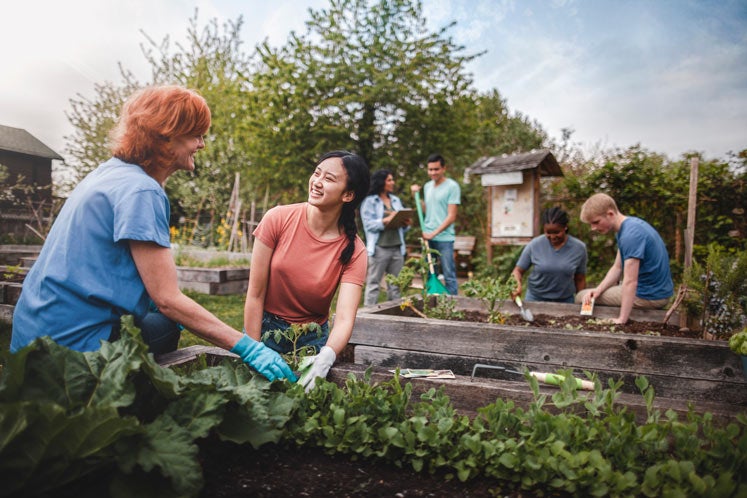Healthy Living
The Physical Power of Social Support

Certain behaviors may help safeguard you from illness and disease. These include exercising regularly and sleeping enough. Staying socially connected may be another. It may well do your body good.
Boosting your health
Everyone you associate with is part of your social network. That may include family members, close friends, coworkers, team mates, and acquaintances. Some of these people you may interact with regularly. Others you may not see or speak with for long stretches of time. No matter their relationship to you, they may play a part in keeping you healthy.
Research supports the power of social support. People who are socially connected tend to live longer. They also may fare better after an illness. For example, adults who have had a heart attack with a moderate to high level of social support reported better quality of life 1 and 12 months later. They also didn’t feel as depressed.
Staying socially connected may help prevent an illness, too. That was the conclusion of one study that looked at hugging and the common cold. For two weeks, a small group of adults were asked about their social support, particularly how many hugs they received in a day. They were then exposed to the virus. Those who logged more hugs showed better immunity to the bug.
What might be behind this connection? It may be related to how your body handles stress. Such chronic strain has been linked to many health ills, including heart disease, depression, high blood pressure, headaches, chronic pain, and obesity. Surrounding yourself with caring people may act as a buffer against stress.
Building social support
Like any healthy habit, building a strong social network takes time and commitment. You need to stay in touch with friends and family. First decide on who you want in your life. Stay away from people who make you feel bad about yourself or who don’t support you. You should also stay away from those who tempt you to take up bad habits, such as abusing drugs.
To help make the relationships you value stronger, do the following:
-
Regularly reach out to those people. Call, text, or email them. Don’t just speak to them when times are bad. Include them in your good moments, too.
-
Make plans to see the person. Schedule a lunch, night out, or other excursion that you both will enjoy.
-
Be a good listener. Don’t always be the one who shares. When you communicate with a friend or family member, ask how everything is going. Be sincere and honest about your feelings. Give your opinion if asked.
Looking to add some new friends to your social network? Consider joining a book club, hiking group, or sports league. Go to places you enjoy or expand your interests. Try taking a class or volunteering. Being socially active can help you find like-minded people.
Author: Semko, Laura
© 2000-2025 The StayWell Company, LLC. All rights reserved. This information is not intended as a substitute for professional medical care. Always follow your healthcare professional's instructions.
